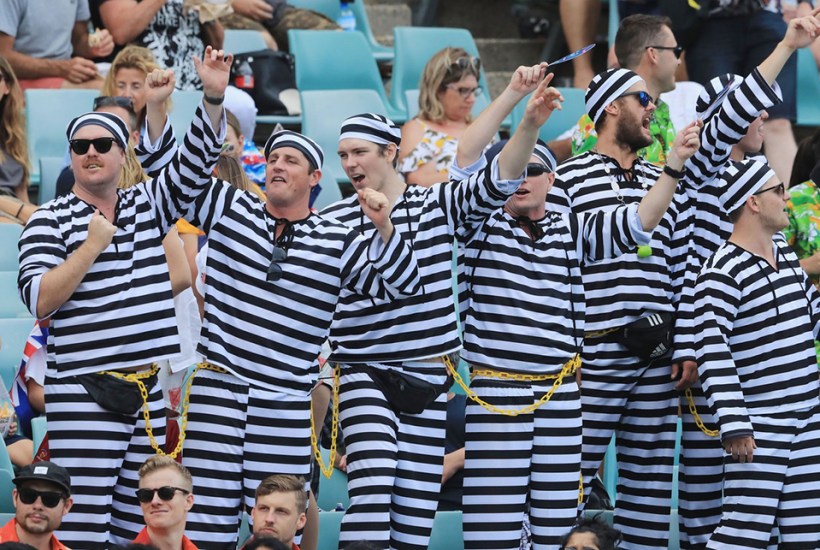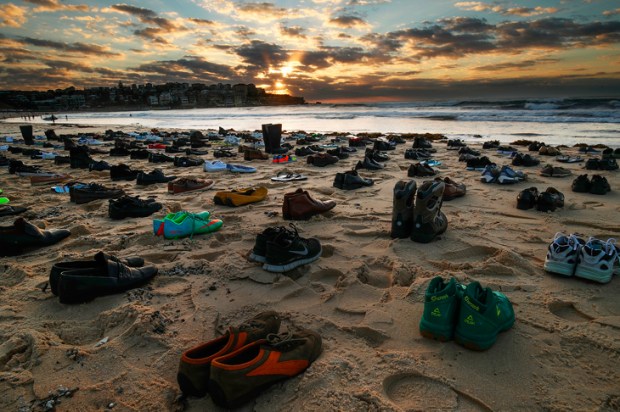As a psychiatrist who visits jails, I’m concerned about biological men being placed in women-only facilities. We’ve been through heated debates about the trans issue in elite sport and in our schools, but prisoners are not a group that is flush with advocates.
Biological female prisoners are some of the most victimised people on Earth. The vast majority experience sexual abuse or physical violence, chaotic upbringings, foster care and many descend into drug abuse.
The policy self-declaration of gender identity hurts biological women. Yet it has been adopted in the bulk of Australian jails as an established norm in our criminal justice system, even though the principle has not yet been incorporated into common law.
This is not just the case in NSW, where the Daily Telegraph confirmed this month that there are three trans women in jails, but also in Victoria, Tasmania and the ACT. Western Australia has two policies, one that allows men to be housed with women based on self-ID, and another that allows the placement of men with women based on transexual status. South Australia, the Northern Territory, and Queensland assess inmates on a case-by-case basis.
Definitive, uncontested figures about the size of the trans prison population are not available however a lawyer writing in Lawyer’s Weekly in November 2020 estimated that there may be as many as several hundred trans inmates in jails around the country. Whatever the number now, you can bet it will go up in parallel with the cultural zeitgeist. If referrals to a single gender clinic can go up by a factor of eighty, as they have done in Melbourne’s Royal Children’s Hospital between 2011 and 2021, you can guarantee some of these individuals will filter through into our jails, especially given the markedly higher rates of mental illness trans people suffer, which automatically put them at greater risk of committing crimes.
Although jails have mostly adopted the policy that an individual’s declared gender identity should take priority over their biological sex, this is widely contested. One reason the policy should not be adopted is because it prioritises the wishes of those who identify as transgender over the rights of others, particularly biological females, not least their right to single-sex facilities. Why should the interests of a trans minority be put ahead of biological women? Why should the trans tail keep wagging the dog?
Sex remains the single biggest predictor of criminality. Ever since such statistics have been collected, for over a century, males make up around eighty per cent of offenders. But when it comes to sexual crimes, the figure is above ninety per cent.
The evidence suggests overwhelmingly that biological males who identify as trans women retain male patterns of criminality including a much higher risk of committing acts of sexual violence in jails. Furthermore, recording trans women as anything other than biological males has the potential to skew future data on criminality.
Female prisoners can be physically violent but much like society in general, aggression in women-only prisons is more likely to be relational, taking the form of damaging gossip or exclusion.
The environment in jails, especially among males, acquires a primitive edge. Inmates often organise themselves into tribes, often linked to their ethnicity. There are the Lebs, the Kooris, the whites, and the Islanders. Those that don’t fit neatly into the designated tribes try to make changes to do so. Inmates feel under threat and act in more primal ways. Conversion to Islam is one such way to ensure a degree of protection.
While the NSW Department of Corrections says that it considers security risks and assault-related crimes of the inmate, reserving the right to overturn the policy, the probability remains that trans women are at a much higher risk of committing a sex-based crime in jail. Britain’s the Prison Service estimates that trans women are five times more likely to carry out attacks in women’s prisons.
I don’t suggest the issue is clear cut. It never is with the trans debate. The calculus changes further if the inmates have had or are planning to have reassignment surgery.
I have assessed several clients who identify as trans women. None were incarcerated. All were terrified of being placed in male prisons for fear of being attacked. I am sympathetic to such fears. International studies show higher rates of trans females being attacked in male-only prisons. As a result, civil rights groups, such as the Human Rights Commission, are usually at the forefront of those advocating for inmates to be incarcerated according to their gender identity rather than their biological sex.
Yet just last month, the state of New Jersey opted to alter its policy of treating its inmates on the grounds of their chosen gender identity in response to the discovery that a trans inmate, Demi Minor, had impregnated multiple inmates. Minor, who is serving thirty years for manslaughter, was housed in a women’s prison, following a court case mounted by the American Civil Liberties Union on behalf of another transgender prisoner who successfully sued the New Jersey prison administration in 2019 for preventing her placement in a women’s jail. Other US states and Britain are now reviewing their policies given the spiraling growth of the trans category in the wider population.
In a recent paper for British think tank, Policy Exchange, lawyer and feminist Maureen O’Hara outlined some of the risks I have alluded to, arguing in her conclusion: ‘All trans-identifying prisoners should be housed within the prison estate which aligns with their biological sex or housed in a separate unit which does not form part of the women’s estate if being housed in the general men’s estate is considered unsafe for them.’ Granted jails are overcrowded, and resources limit the extent to which the special needs of trans prisoners can be met with unique facilities, but such a recommendation should be strongly considered within our criminal justice system.
All people, even those who face serious charges or are guilty of serious crimes, should be treated with dignity and compassion but it’s time to reconsider housing prisoners based on their self-declared gender. By doing so we are the placing the rights of trans-identifying male-bodied offenders above those of women in fear of male violence.
Got something to add? Join the discussion and comment below.
Get 10 issues for just $10
Subscribe to The Spectator Australia today for the next 10 magazine issues, plus full online access, for just $10.
You might disagree with half of it, but you’ll enjoy reading all of it. Try your first month for free, then just $2 a week for the remainder of your first year.














Comments
Don't miss out
Join the conversation with other Spectator Australia readers. Subscribe to leave a comment.
SUBSCRIBEAlready a subscriber? Log in